By CoopeSoliDar RL. The following contributed to this article: Griselda Alvarado Picado, Ivannia Ayales Cruz, Vivienne Solís Rivera and Marvin Fonseca Borras.
This article is a translation of the original in Spanish here.
The organizations of indigenous peoples and local communities have power – power that is often undervalued by people from outside the community; sometimes visiting the community as part of a project, academic centre or organization that comes to offer its “help” or scientific / technical knowledge, based on an outsider “development” that does not take into account the true interests of local communities and native people. Every local community or indigenous people’s community has a diversity of rights that need to be respected: one of those is free, prior, and informed consent, as stipulated in Convention 169 of the International Labor Organization on Indigenous and Tribal Peoples, and also in the agreements of the Convention on Biological Diversity.
The free, prior, and informed consent is the right of indigenous peoples and local community organizations to participate in or to say no to a project or initiative. They have the right to open or close the community doors on the use of their traditional knowledge and have the right to decline to participate, or decline to provide time and information to the organization that is requesting to perform the intended intervention. Likewise, they have the right to oppose the conservation or development measures in their territories of life.
This consent is a concept that guarantees consent or not to any decision that affects their territory, their lands, livelihoods and/or ancestral cosmology. It has to be prior to the actions to be taken, because it should be requested with enough time in advance of the possible start of the project and/or activities, which allows the communities to participate and make decisions before the start of the project. It has to be free because those decisions must be made without intimidation, manipulation, bribery or threat. It has to be well-informed with a fluid, clearly understandable form of communication, in the language of the indigenous communities and peoples, or with a relevant, timely and transparent translation. That is to say, the information concerning the actions to be taken in the territory must be transmitted clearly, emphasizing the objective to be achieved, how it is going to be carried out, its purpose, and the duration of the process.
However, there are non-governmental organizations, government institutions and even universities with professional research centres that do not implement this valuable and non-negotiable tool to develop certain projects and processes in local communities and indigenous peoples’ territories. In this way, their presence is imposed on the communities and territories, leaving a gap in how communities access the needed information and not respecting the rights of the people with whom they intend to carry out the execution of a project or process.
It is because of the above that CoopeSoliDar RL, as a primary pillar of our work, practices “knocking on the community’s door” before entering the local territories and communities to develop a process of accompaniment within the framework of the implementation of activities, processes or projects.
This tool allows people from local communities or indigenous peoples’ territories to provide feedback to the ideas and respect the right of objection – if it is so – of the community before developing an initiative in their territory of life.
The free, prior and informed consent is a practice that must be carried out regularly in the development of processes in different territories, which guarantees the exercise of the rights of people from local communities and indigenous territories.
This has been the case of the long-term process of work that CoopeSoliDar RL has developed with CoopeMolusChomes RL. The mollusk-gathering women that make up this cooperative have come in a process of capacity building, around their rights, potentialities and leadership and, recently, as part of the Women4Biodiversity case study process.
The first meeting of this process was held on 18 February this year. In that session, CoopeSoliDar RL returned to the community with the aim of raising the possibility of providing continuity to the support of previous work of CoopeSoliDar RL, in a period of two years, and together with Women4Biodiversity.
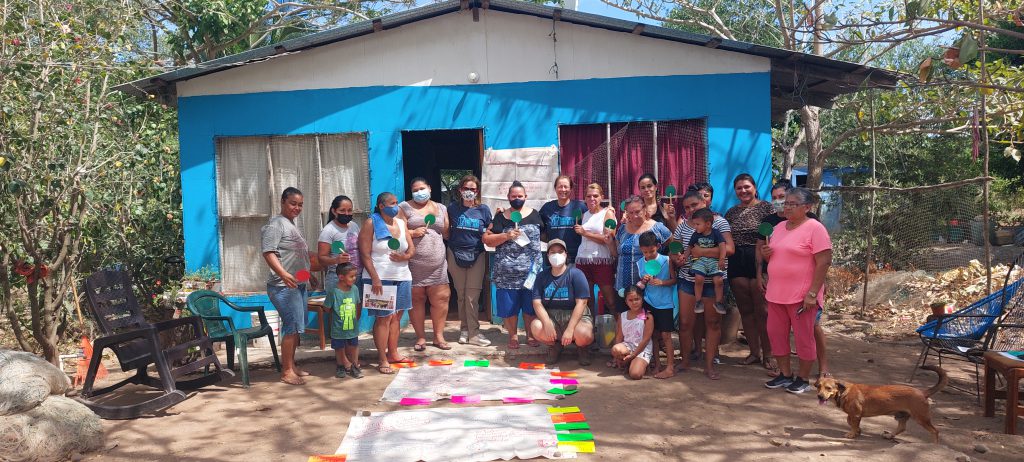
This open conversation with the community and women part of the cooperative also made it possible to open a space where women had the opportunity to share their personal and institutional situations as a result of, not only the COVID-19 pandemic and its social and economic consequences, but also, in the context of how the global economy also affects their survival.
Women shared the impacts of environmental effects in the community; for example, the effects on their livelihoods of more than 6 months by a red tide that prevented the extraction of the mollusks from which the women of this cooperative live off. It was also discussed how, despite the difficulties experienced, women have strengthened their resilience and their desire to fight and overcome such conflicts and complex situations within the framework of the sustainable use of marine resources.
The main objective of this meeting was to provide a clear explanation in appropriate language to the women representatives of CoopeMolusChomes RL on where this process came from, the name of the donor organization and the impact at the level of international recognition of the work carried out by Women4Biodiversity. In this way, the option was opened for CoopeMolusChomes RL to be part of this global network that exposes and positions cases of women’s organizations working towards recuperation of valuable ecosystems such as, in their case, the Puntarenas mangrove area.
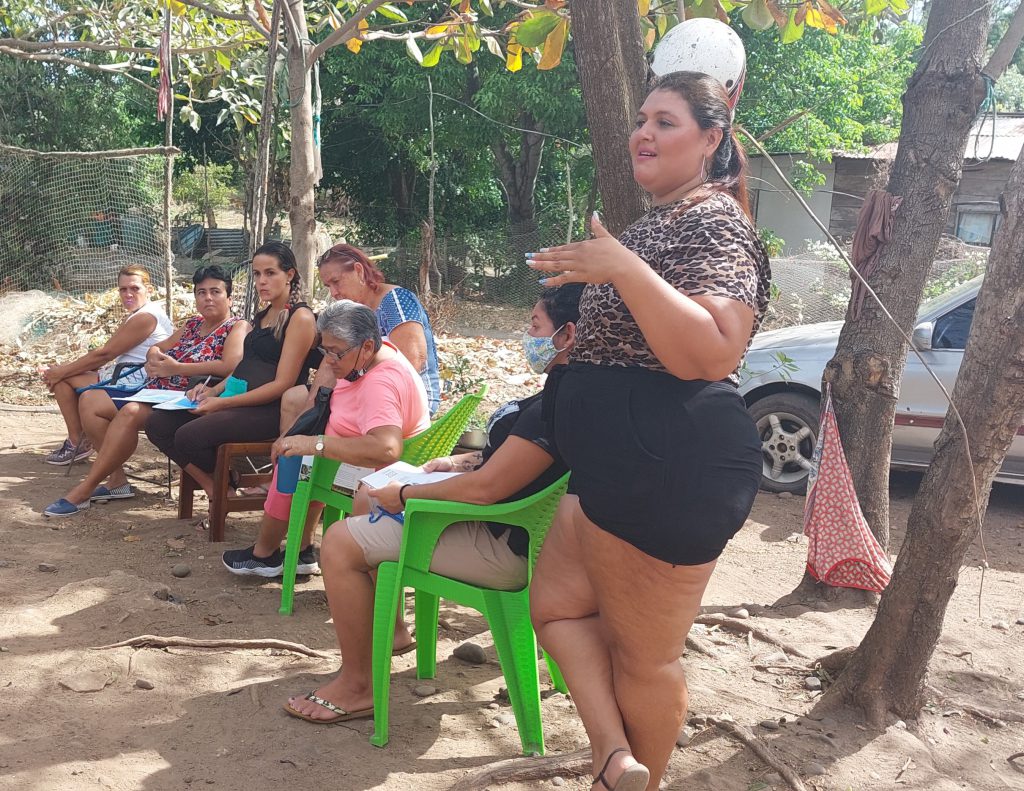
The meeting marked the beginning of this process, making it clear that CoopeMolusChomes RL is an organization that leads and guides the important decisions to be made in its territory; while CoopeSoliDar RL plays a role of technical support, facilitation and capacity building in the different aspects that the group and/or organization needs, a practice they have carried out with local and indigenous communities for more than 22 years.
A second objective consisted of the exercise of free, prior and informed consent and the elaboration of a code of ethics for the implementation of the process. CoopeSoliDar RL, through its technical team, developed this exercise in order for the women present to express whether they agreed that this process would be carried out. Important values for the development of this process were defined and how they would like to be involved in the different phases of the initiative were discussed.
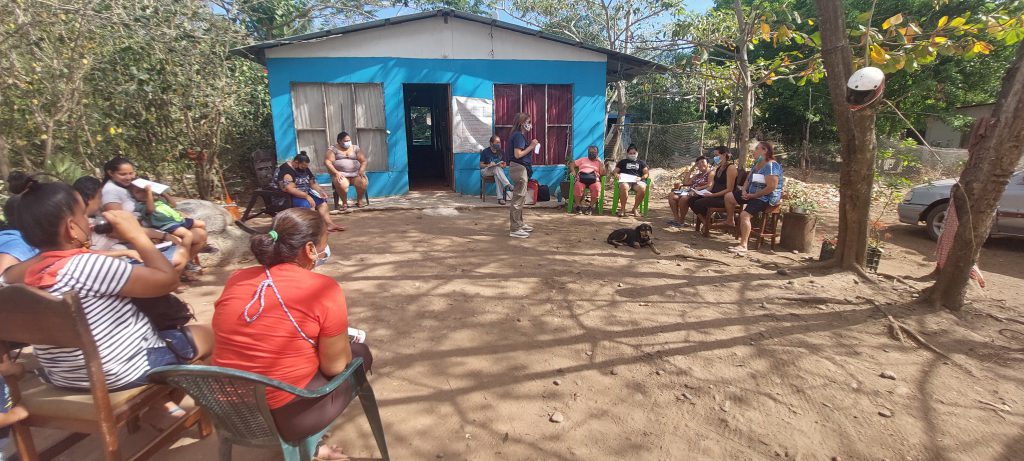
With the aim of making the decisions of the mollusk-gathering community as objective and free as possible, the technical team of CoopeSoliDar RL left the meeting room so that the women could debate among themselves the elements presented – if the explanation was clear, if there were doubts about the process to be developed, and, if finally, the consent was given to advance in the implementation of the process and under what conditions.
As part of the agreements reached between CoopeMolusChomes RL and CoopeSoliDar RL, the following was proposed:
· Hold a new meeting to prepare the work plan for Year 1 and Year 2 of this process.
· Develop a new workshop concerning the issue of decent work, with the aim of strengthening the participation of new women who have joined the cooperative. It is worth mentioning that a similar training process was carried out in the community a few years ago.
· A series of communication mechanisms were defined throughout the process. (see below).
· In order to guarantee a positive and transparent work process, a set of principles and values were defined to be follow during the implementation period, which are:
1. Transparency in the use of financial resources
2. Conflict resolution
3. Training and education
4. Commitment
5. Perseverance
6. Permanence in the presence and participation (that the process is not abandoned)
7. Punctuality
8. Union between CoopeMolusChomes RL and CoopeSoliDar RL
On the other hand, to provide an effective follow-up to this process, four commissions were established, based on the specific results of this process.
About result 1: Women are trained and acquire more knowledge about international treaties and policies related to biodiversity and human rights issues.
It was unanimously decided that all the women participants present were willing to be part of this result.
About result 2: Development of a case study with the women of Chomes in the context of the conservation and restoration of coastal marine biodiversity and human rights
It was unanimously decided that all the women participants present were willing to be part of this result.
About result 3: Women from Marine Responsible Fishing and Marine Territories of Life Network, CoopeSoliDar RL and CoopeMolusChomes RL actively participate in meetings and global discussion spaces and influence the importance of recognizing the work of fishermen and women in conservation of biodiversity.
4 women voluntarily showed their interest in participating at the Fifteenth Meeting of the Conference of the Parties to the Convention on Biological Diversity (CBD COP 15): Aracelly Jiménez, Flor Villalobos, Ana Cortes and María Fernanda Mora.
In conclusion, it is essential to emphasize that the implementation of free, prior and informed consent is a right of all people from Indigenous peoples and local communities This exercise is essential to establish actions in the implementation of the 2030 Global Biodiversity Framework, which will be developed after its approval within the framework of the Convention on Biological Diversity process at COP 15 in Montreal, Canada this December.
This exercise must be carried out in a comprehensive and transparent manner that guarantees respect in decision-making and the achievement of true and effective participation of people from indigenous peoples and local communities in the development of processes, initiatives or projects.
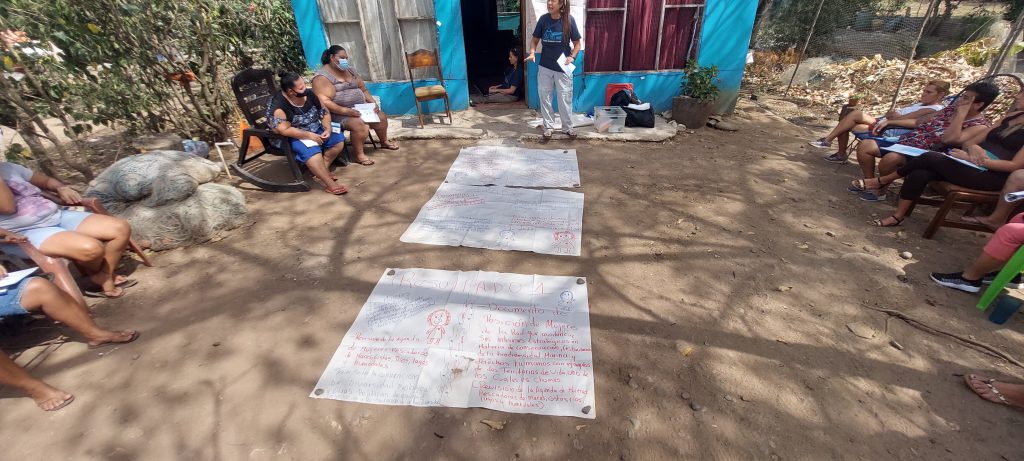
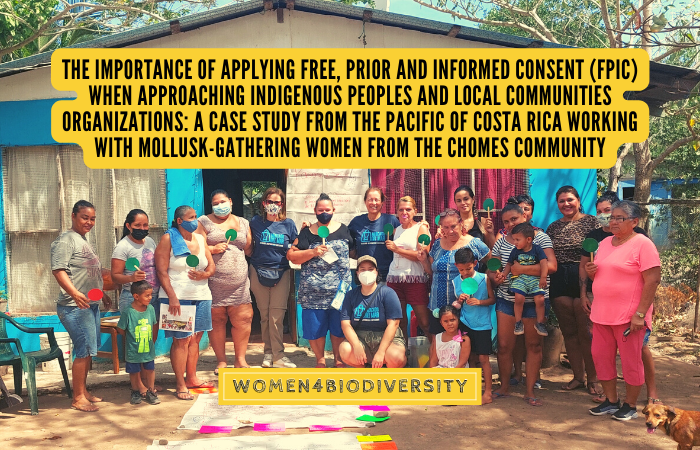

Although free prior and informed consent highlight the different stages and processes government neglect their responsibility on this rule. Local government first approve projects and then do public participation witch then lead to unhappy communities. Many project comes to an end as soon as they start as communities riots and stop that projects with force. It then leads that the same project has to be done from scratch witch has a big cost on government.